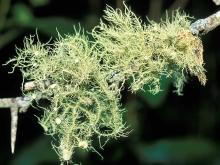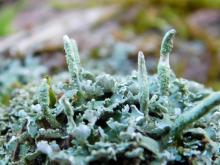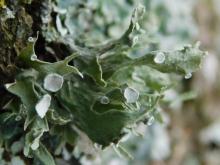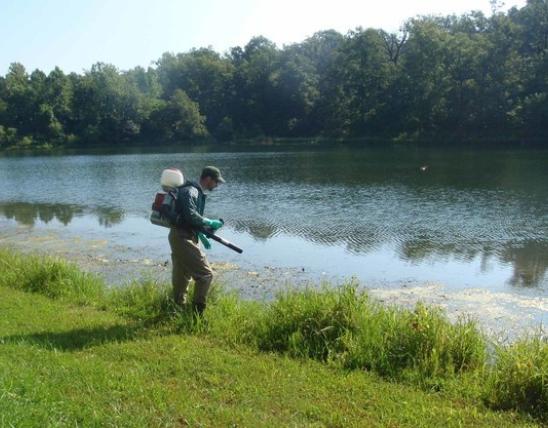Mosses, Liverworts, and Lichens
Media

Species Types
Scientific Name
Usnea spp.
Description
Beard lichens are shrubby, branching, hairy-looking lichens that grow in tufts from a single point on tree branches. They are grayish green, and the branches are round in cross-section.
Media

Species Types
Scientific Name
Cladonia coniocraea
Description
Common powderhorn’s slender, gray-green, hornlike fruiting structures emerge from a carpet of gray-green, scalelike squamules. This lichen usually grows on old, damp wood, often on tree bases, in shady areas.
Media

Species Types
Scientific Name
Ramalina spp.
Description
Twig lichens, or ramalina lichens, are branching, shrubby lichens that grow in tufts from a single point. They are grayish green, and the branches are distinctively flattened.
Media

Species Types
Scientific Name
About 436 species in Missouri
Description
A lichen is a composite organism formed by certain fungus species that join with certain algae species. Lichens can be many colors and can be crusty, leaflike, flaky, branching, or mossy. They grow on rocks, trees, or other surfaces.
See Also
About Mosses, Liverworts, and Lichens in Missouri
Mosses, liverworts, hornworts, and lichens seem rather similar, but these organisms are in very different groups. Mosses, liverworts, and hornworts are small, low plants usually found in damp habitats. Unlike more familiar plants, they lack veinlike structures and do not produce flowers or seeds — instead, they produce spores. Meanwhile, lichens are not plants at all: they are a collection of different fungi that have photosynthetic algae living within their tissues.





















